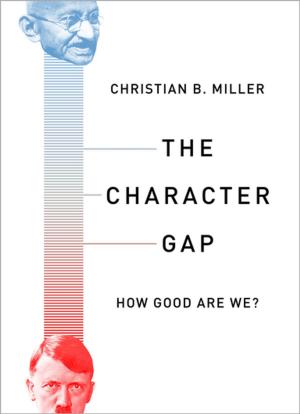The Gerontological Imagination
An Integrative Paradigm of Aging
Nonfiction, Health & Well Being, Medical, Specialties, Geriatrics| Author: | Kenneth F. Ferraro | ISBN: | 9780190665388 |
| Publisher: | Oxford University Press | Publication: | December 1, 2017 |
| Imprint: | Oxford University Press | Language: | English |
| Author: | Kenneth F. Ferraro |
| ISBN: | 9780190665388 |
| Publisher: | Oxford University Press |
| Publication: | December 1, 2017 |
| Imprint: | Oxford University Press |
| Language: | English |
The scientific study of aging is a relatively nascent field of inquiry. Although philosophic and literary reflections on what it means to grow older appear in the earliest historical records, the systematic study of aging began in earnest about a century ago. Scholarly interest in the topic has accelerated in recent decades, due in part to rapid population aging in developed nations. As a result, the study of aging has been incorporated into many disciplines, emphasizing concepts, theories, and methods to elucidate the antecedents and consequences of growing older. Although each discipline has key concepts and empirical generalizations about aging, there is little agreement across disciplines about the intellectual core of gerontology. Each discipline brings its own intellectual heritage and perspective to the study of aging, but the question posed by author Ken Ferraro is whether there is an emergent perspective or way of thinking about aging that transcends the disciplines. Biologists, psychologists, and sociologists may claim an interest in gerontology, but do they have a common image of aging or a set of principles to guide their research? Do they share a paradigm-a fundamental image of aging-that incorporates concepts and empirical generalizations from multiple disciplines? And when disciplinary approaches to gerontology clash, which approach or conceptualization of aging is likely to emerge as part of the paradigm? Although biologists, psychologists, and social scientists share an interest in the study of aging, they are distinctive in how they conduct their research. The Gerontological Imagination provides an integrative paradigm of aging that makes it the first book to identify intellectual common ground among scholars studying aging. Ferraro identifies an underlying set of principles that constitute a paradigm for the study of aging: causality, life course analysis, multifaceted change, heterogeneity, accumulation processes, and ageism. The proposed paradigm provides an efficient way to identify and interpret essential ideas, findings, models, and theories across multiple disciplines that study aging.
The scientific study of aging is a relatively nascent field of inquiry. Although philosophic and literary reflections on what it means to grow older appear in the earliest historical records, the systematic study of aging began in earnest about a century ago. Scholarly interest in the topic has accelerated in recent decades, due in part to rapid population aging in developed nations. As a result, the study of aging has been incorporated into many disciplines, emphasizing concepts, theories, and methods to elucidate the antecedents and consequences of growing older. Although each discipline has key concepts and empirical generalizations about aging, there is little agreement across disciplines about the intellectual core of gerontology. Each discipline brings its own intellectual heritage and perspective to the study of aging, but the question posed by author Ken Ferraro is whether there is an emergent perspective or way of thinking about aging that transcends the disciplines. Biologists, psychologists, and sociologists may claim an interest in gerontology, but do they have a common image of aging or a set of principles to guide their research? Do they share a paradigm-a fundamental image of aging-that incorporates concepts and empirical generalizations from multiple disciplines? And when disciplinary approaches to gerontology clash, which approach or conceptualization of aging is likely to emerge as part of the paradigm? Although biologists, psychologists, and social scientists share an interest in the study of aging, they are distinctive in how they conduct their research. The Gerontological Imagination provides an integrative paradigm of aging that makes it the first book to identify intellectual common ground among scholars studying aging. Ferraro identifies an underlying set of principles that constitute a paradigm for the study of aging: causality, life course analysis, multifaceted change, heterogeneity, accumulation processes, and ageism. The proposed paradigm provides an efficient way to identify and interpret essential ideas, findings, models, and theories across multiple disciplines that study aging.















